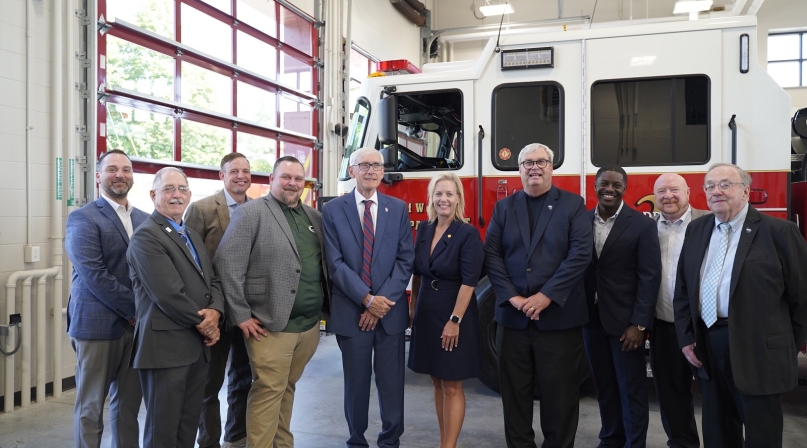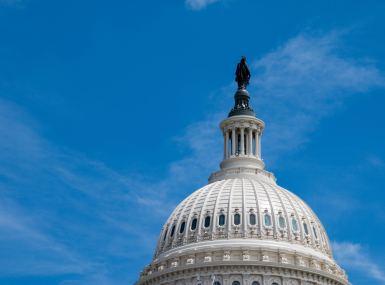Wisconsin passes 'game changer' for county funding

Key Takeaways
Wisconsin counties will see a major boost in funding and a chance to control their own destiny under a new state tax policy signed into law this week.
Assembly Bill 245, which Gov. Tony Evers (D) signed June 19, will send 20 % of the average state’s sales tax revenue to local governments, which will receive a minimum increase of 15% in existing county and municipal aid. The new law also allows the Milwaukee County Board to vote on raising local sales taxes.
“This reform will inject a significant amount of new money into the system,” said Josh Schoemann, Washington County’s executive. “At the same time, it will incentivize us to help that sales tax grow, which is an important point.”
Counties and municipalities currently use the percentage of net new construction as a valuation factor in determining the allowable levy, which Wisconsin Counties Association Executive Director Mark O’Connell said has been inadequate.
“That is insufficient to take care of counties’ growing needs, whether it’s employee healthcare or pay raises or increase costs to perform our functions. It’s just not enough,” he said.
Prior to being elected executive, Schoemann was Washington county’s administrator, and in both roles, he has been keenly aware of the budget stresses mounting as revenues stagnated and costs increased across the board.
“The better part of the last 20 years, we have really been doing more with less, and then eventually doing less with less,” he said. “We haven’t significantly added sheriff’s deputies and personnel in the sheriff’s office for many, many years and this will give us the ability to actually do that and the growth capacity in the budget for future years to pay for it continually.”
Racine County Executive Jonathan Delagrave is going to see his county’s share of revenue increase by $2.5 million per year.
“With this extra money, we’re going to be able to proactively deal with issues like fentanyl, mental health crises and other problems we just haven’t been able to meet with the appropriate resources.
“It’s going to be a game changer, and we did it with a divided government, and for a divided government to come together and do what’s in the best interest of counties is pretty cool.”
Upon signing the bill, the Governor said shared revenue “has always been about doing the right thing for Wisconsin.
“I believe the state should be doing its part to support our local partners and ensure our communities have the resources they need to meet basic and unique needs alike, period, and I’ve always believed that supporting our local communities is an area where we could work to find common ground and bipartisan support, and that’s exactly what we did.”
Taking the wheel
O’Connell likes the control the bill gives counties to own their efforts to drive economic growth.
“We ask ourselves ‘What does the private sector need?’ It’s available capital, infrastructure like broadband everywhere you can breathe, hard infrastructure like transportation, but also smart young talent,” he said. “When you look at the list of things that attract talent, 80% of them are things that government funds, but we couldn’t fund them without resources.
“Thanks to this revenue stream, we’ll be able to take those dollars, invest in our communities, make them attractive to the smart young talent which can then fuel the private sector, generating more economic activity and the cycle is actually sustainable. I think is sort of the innovative part of this.”
Attachments
Related News

U.S. House Appropriators release minibus funding package
The funding package includes key county priorities, including funding for community and economic development, election administration and security, taxpayer services and intergovernmental partnerships.

County Countdown – Dec. 15, 2025
Every other week, NACo's County Countdown reviews top federal policy advocacy items with an eye towards counties and the intergovernmental partnership.

